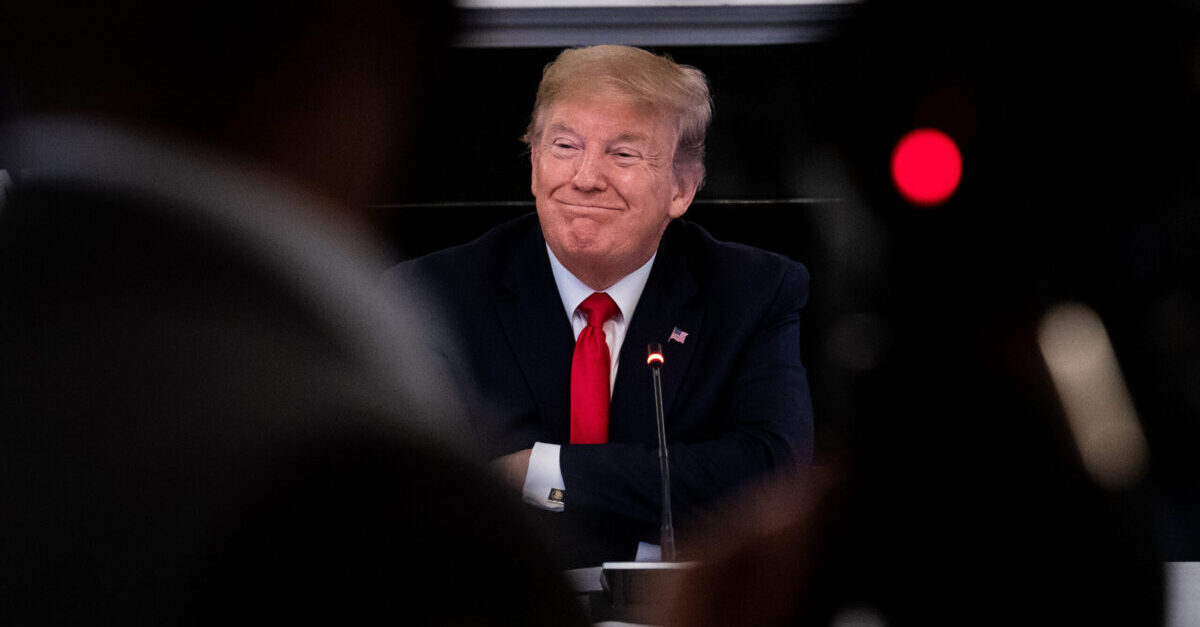
The U.S. Supreme Court on Thursday decided a pair of cases regarding President Donald Trump’s tax returns. Both of those opinions were definite–but qualified—short-term victories for the president.
In Trump v. Vance, the nation’s high court ruled 7-2 that presidents are not absolutely immune to criminal process.
A strictly technical analysis of this opinion reads as a landmark ruling and a victory for Manhattan District Attorney Cyrus Vance–the county prosecutor who issued a subpoena for Trump’s financial records as part of an ongoing criminal probe. But, in real terms, the court’s decision to remand the decision likely means that Vance won’t get Trump’s records anytime soon–if ever. And almost certainly not before November.
“Vance will likely have to go back to court with the President to see if subpoenas can be narrowed, but Trump can’t avoid the process,” explained University of Alabama Law Professor Joyce Vance. “Of course, the issue of delay in the courts comes back into play.”
University of Texas Law Professor Steve Vladeck clarified the upshot of the ruling means that the Supreme Court merely rejected “Trump’s categorical objection to grand-jury subpoena” while the remand for further proceedings means “the records remain on hold for now.”
A similar–and effectively identical in real terms–situation played out in the case stylized as Trump v. Mazars USA, LLP.
In another 7-2 ruling, Chief Justice John Roberts found that Congress may issue subpoenas for the president’s financial records in theory but that the particular reasoning advanced by Congress here–and accepted by multiple federal judges–was simply too broad and would have created a dangerous information-gathering precedent if upheld. The decisions here were vacated and remanded with instructions for the lower courts to apply a more exacting standard of review.
Vladeck called the Mazars ruling “muddled” and noted that those requested records, too, “remain blocked for now.”
“Trump’s objections to these subpoenas are overbroad, but [the Supreme Court] remands to allow him to assert more specific objections (which will certainly push these cases past the November elections),” he added. “So Trump wins despite ‘losing.'”
University of California Irvine Law Professor Rick Hasen offered a more hopeful view of the decisions’ ultimate reach.
“Remands in both Supreme Court cases today (Vance and Mazars) means Trump documents very unlikely to be produced publicly before November’s election,” he wrote. “But bad news for Trump down the line in terms of shielding his documents.”
Others weren’t so cautious in their estimation of the rulings.
“This is absolute cowardly horseshit by Roberts,” said legal blogger and Arizona-based defense attorney bmaz in a series of increasingly outraged posts.“Today was actually a huge win for Trump in any short run that currently matters.”
Slate legal writer Mark Joseph Stern argued that “John Roberts has punted masterfully.”
“A New York grand jury will see Trump’s tax returns, but the information will likely remain secret to the outside world,” he explained. “The House *might* get Trump’s financial records eventually, but will remain mired in the lower courts for months.”
But bmaz was not interested in the Roberts hagiography:
No Mark, cowardly, not masterfully. https://t.co/F9AcHJTmJp
— bmaz (@bmaz) July 9, 2020
Far from simply throwing the 45th president a limited-time lifeline, however, Roberts actually provided the executive branch ample ammunition to keep the dream of financial secrecy alive–and even possibly win the battle at the district and/or appellate court level.
Former Pentagon special counsel Ryan Goodman noted:
What @JoyceWhiteVance said.👇
Chief Justice Roberts’ opinion includes a road map of new and specific arguments Trump can now raise in lower court. These final pages of the opinion: https://t.co/6NgNKqf6Nf pic.twitter.com/duhZb108zE
— Ryan Goodman (@rgoodlaw) July 9, 2020
The American Civil Liberties Union attorney Josh Block did note one important feature of both rulings likely to invigorate the president’s opponents–at least a little.
“Bad day for the jurisprudence of Judge [Neomi] Rao,” he commented.
[image via Erin Schaff-Pool/Getty Images]
Have a tip we should know? [email protected]